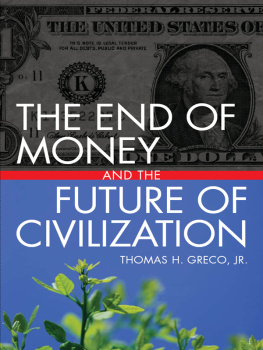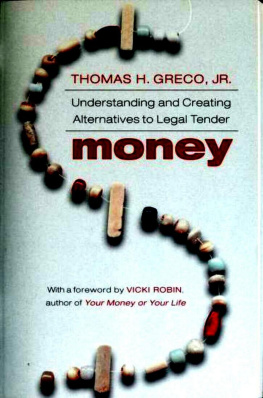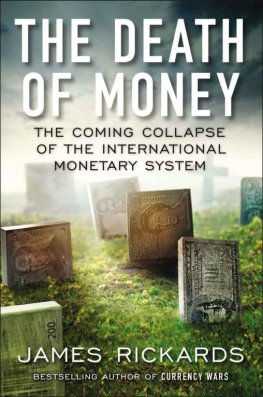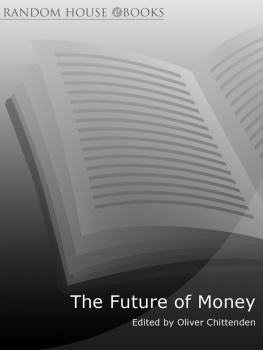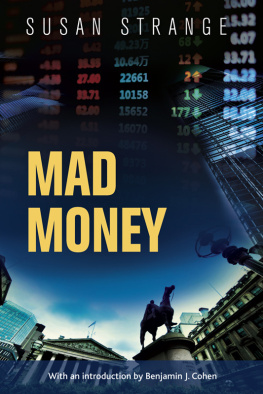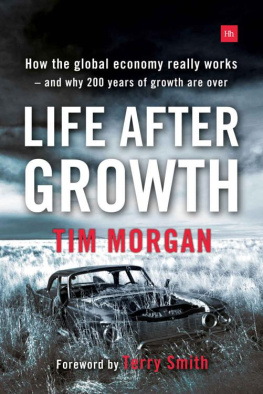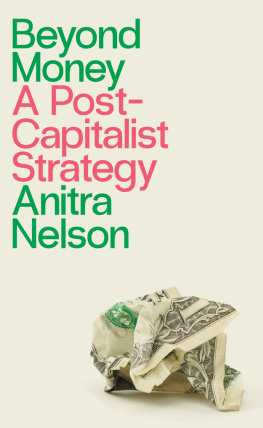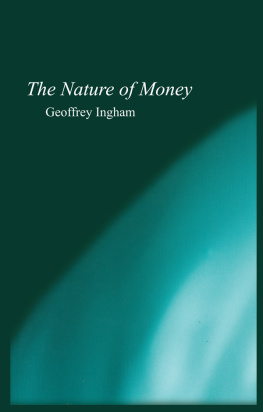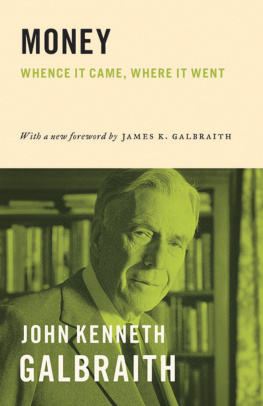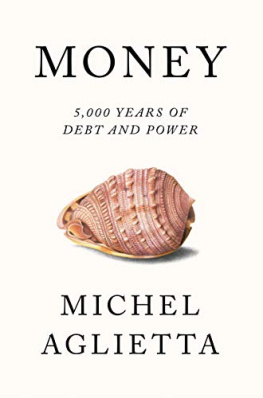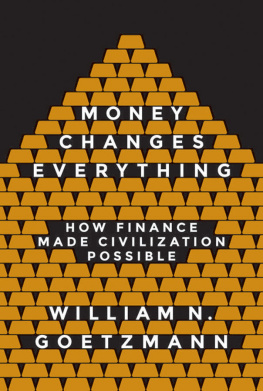
THE END OF MONEY
AND
THE FUTURE OF CIVILIZATION
THE END OF MONEY
AND
THE FUTURE OF CIVILIZATION
THOMAS H. GRECO, JR.
CHELSEA GREEN PUBLISHING
WHITE RIVER JUNCTION, VERMONT
Copyright 2009 by Thomas H. Greco, Jr.
All rights reserved.
No part of this book may be transmitted or reproduced in any form by any means without permission in writing from the publisher.
Project Manager: Emily Foote
Developmental Editor: Jonathan TellerElsberg
Copy Editor: Eric Raetz
Proofreader: Helen Walden
Designer: Peter Holm, Sterling Hill Productions
Printed in the United States of America
First printing, April 2009
10 9 8 7 6 5 4 3 2 1 09 10 11 12 13 14
Our Commitment to Green Publishing
Chelsea Green sees publishing as a tool for cultural change and ecological stewardship. We strive to align our book manufacturing practices with our editorial mission and to reduce the impact of our business enterprise on the environment. We print our books and catalogs on chlorine-free recycled paper, using soy-based inks whenever possible. This book may cost slightly more because we use recycled paper, and we hope youll agree that its worth it. Chelsea Green is a member of the Green Press Initiative (www.greenpressinitiative.org), a nonprofit coalition of publishers, manufacturers, and authors working to protect the worlds endangered forests and conserve natural resources.
The End of Money and the Future of Civilization was printed on 55-lb Natures Book Natural, a 30-percent postconsumer recycled paper supplied by Thomson-Shore.
Library of Congress Cataloging-in-Publication Data
Greco, Thomas H., 1936
The end of money and the future of civilization / Thomas H. Greco.
p. cm.
Includes bibliographical references.
eBook ISBN: 978-1-60358-224-7
1. Money--History. 2. Banks and banking--History. 3. Finance--History. 4. Power (Social sciences)--History. I. Title.
HG231.G65 2009
332.49--dc22
2009000789
Chelsea Green Publishing Company
Post Office Box 428
White River Junction, VT 05001
(802) 295-6300
www.chelseagreen.com
Dedicated to the memory of my father, who made sure I had a good education and, though he didnt always understand, provided unfailing support throughout his life.
CONTENTS
Chapter 2
Chapter 4
Chapter 6
Chapter 7
Chapter
Chapter 9
Chapter 10
Chapter 12
Chapter 13
Chapter 14
Chapter 15
Chapter 16
Chapter 17
Chapter 18
Chapter 19
Chapter 20
It may seem a bold assertion to suggest that the end of money might occur any time soon. Money is such a basic feature of our everyday lives that a world without it is almost inconceivable. It is a thing as necessary as air, water, and foodbecause, in a developed economy, it is by the process of exchange that we acquire virtually everything we need to live, and money is the instrument that enables that exchange. Exchange will certainly continue, but in quite a different way, and money as we know it will become obsolete. How this is occurring, and what will take its place, are the subjects of this book.
Very few people realize that the nature of money has changed profoundly over the past three centuries, or that it has become a political instrument used to centralize power, concentrate wealth, and subvert popular government. While there has been some talk about the cashless society, what is being talked about does not constitute an end to money, but rather the enhancement of political money by the application of ever more effective instruments of social, economic, and political control. When I speak about the end of money,I am referring to the growing recognition that money has become nothing morethan an information system, and to the emergent mechanisms for managingexchange information outside of the conventional banking system and withoutthe use of political monies.
The implications of this are multidimensional and far-reaching. Dee Hock, CEO emeritus of VISA International, has said,
we are at that very point in time when a four hundred year old age is rattling in its deathbed and another is struggling to be born. A shifting of culture, science, society, and institutions enormously greater and swifter than the world has ever experienced. Ahead, lies the possibility of regeneration of individuality, liberty, community, and ethics such as the world has never known, and a harmony with nature, with one another and with the divine intelligence such as the world has never seen. It is the path to a livable future in the centuries ahead, as society evolves into ever-increasing diversity and complexity. [emphasis in the original]
In my view, that must be a shift from elite rule based on command and control hierarchies and military force to a more inclusive, participatory, just, harmonious, and sustainable order. I maintain, in all humility, that this book goes a long way in providing what is needed for that shift to come about. It describes the single most important thing that needs to happen, which is a fundamental change in the way we mediate the exchange of goods and services, and it provides specific advice that will enable a process I refer to as reclaiming the credit commons that can be achieved by the widespread implementation of direct credit clearing unions and private production-based voucher systems that I describe in later chapters.
My Personal Journey
I grew up in the 1940s and 1950s. That was a time of great confidence and optimism in America. Fascism had been obliterated, or so we thought. Through American generosity, Europe was being rebuilta magnanimous gesture toward our former enemies in the form of the Marshall Plan. And despite the cold war and the communist menace, it seemed as if progress was inevitable, that life could only get better for everyone. The United States was the greatest, richest, most productive, and most benevolent country in the world. Like the movies we saw, the world was mostly black and white, there were good guys and bad guys, and on the world stage we Americans were (of course) the good guys.
As a young professor, I was dismayed by the student unrest on college campuses in the late 1960s and early 1970s and their seeming disrespect for established institutions. Even at conservative Rochester Institute of Technology (RIT) where I was teaching, there were frequent false alarms and bomb threats that disrupted the normal class routine as buildings had to be evacuated and searched for nonexistent bombs. I thought it was all part of a communistinspired plot to destroy our educational system and our American way of life.
Seeds of Disillusionment
Some seeds of disillusionment had already been planted in my mind a few years earlier while I was working on my MBA at the University of Rochester. I happened to find a book in the Rush-Rhees library that piqued my curiosity. It must have been its provocative title that caught my interest. The book was The Power Elite by C. Wright Mills, published in 1956. At that time, the very idea of an elite class in our supposed classless American society was considered by most to be an absurdity. The predominant view was that America was a pluralistic society in which competing interests kept each other in check. That notion was supported by works like John Kenneth Galbraiths
Next page
